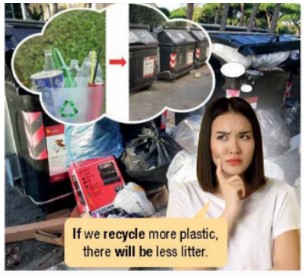Hãy nhập câu hỏi của bạn vào đây, nếu là tài khoản VIP, bạn sẽ được ưu tiên trả lời.

1. We consume protein in meats and foods. We can stay concentrated and quick-minded.
A. Protein in meats and foods which is consumed helps us stay concentrated and quick-minded.
B. Protein in meats and foods which we consume helping us stay concentrated and quick-minded.
C. We consume protein in meats and foods help us stay concentrated and quick-minded.
D. We consume protein in meats and foods which helping us stay concentrated and quick-minded.
2. Everyone can do Pilates. It doesn’t matter if you are not fit.
A. You can do Pilates as a method to keep fit. B. You can do Pilates no matter how fit you are.
C. You cannot do Pilates only when you are not fit. D. You should do Pilates because you are not fit.
3. You drink green tea from twice to three times per day. It will bring you visible results by days.
A. Despite you drink green tea from twice to three times per day, visible results will be brought by days.
B. Due to you drink green tea from twice to three times per day, visible results will be bring by days.
C. Even though you drink green tea from twice to three times per day, visible results will bring by days.
D. Since you drink green tea from twice to three times per day, visible results will be brought by days.
4. Fatty acid level is low. It causes a higher risk of memory loss.
A. Because of low fatty acid, a higher risk of memory loss is caused.
B. In spite of low fatty acid, a higher risk of memory loss is caused.
C. Since the low fatty acid, a higher risk of memory loss is caused.
D. The result low fatty acid, a higher risk of memory loss is caused.

Read the following passage and mark the letter A, B, C or D on your answer sheet to Research by the National Sleep Foundation in Washington says that we all need eight hours sleep every night. Scientists have found that people who sleep for less than six and a half hours a night are more often ill than people who sleep for eight hours. Going without sleep also increases the chance of serious illness. People who sleep for less than five hours often die young, and do less well at work. The scientists found that, on average, adults sleep for seven hours a night, with thirty-two percent sleeping less than six hours. It also says that the idea that we need less sleep as we get older is completely untrue. "People have no idea how important sleep is to their lives," Dr Thomas Roth, director of the Foundation says. "Good health needs good sleep." "But not too much of it," says Professor Jim Home of Loughborough University. "Sleep is like food and drink water." he believes: "you would always like to have a little bit more, but that doesn't mean you need it." Professor Horne studied a group of people who could spend as many hours as they wanted in bed; after ten hours they didn't find it any easier to get up in the morning. And people who sleep for more than nine hours a night die younger than people who usually sleep for seven or eight!
Question 22. The main subject of the passage is
A.sleep time B. UniversityC. Good health D.food and drink
Question 23. According to the passage, adults sleep for seven hours a night_______sleeping less than six hours.
A. 22% B.20% C.40% D.60% trong bài đọc là 32% e nhé
Question 24. The word "who" in paragraph 1 refers to
A. illness B. people
C. children D. die younger
Question 25. The word "serious" in the paragraph is closest in meaning
A bad or dangerous
B. important and valuable
C. unimportant or unnecessary
D. unique and impressive
Question 26. Professor Jim Horne said that food is like EXCEPT
A. food
B. drink
C. water
D. hours

balanced
balanced nhé